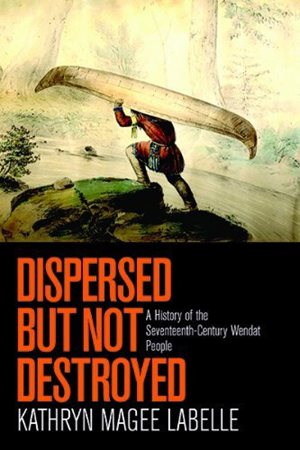Dispersed but Not Destroyed: A History of the Seventeenth-Century Wendat People

Support Canada's History in other ways (more)
by Kathryn Magee Labelle
University of British Columbia Press, Vancouver, 2013
287 pp., $32.95 paperback
As a high school student, author Kathryn Magee Labelle was fascinated by the Wendat (Huron) and deeply disappointed to learn from textbooks that this Aboriginal nation had been destroyed 350 years ago. Later, in university, she was puzzled to come across a professor who declared himself a Wendat from Quebec.
How was this possible if the Wendat had been destroyed? “It is a long story,” he told her. Out of Labelle’s question arose much research and her very aptly titled book Dispersed But Not Destroyed.
Now an assistant professor of Aboriginal Canadian history at the University of Saskatchewan, Labelle challenges conventional thinking about the Wendat, a matrilineal society of farmers and traders who thrived for two centuries on territory known as Wendake (Huronia), located between Lake Simcoe and Georgian Bay in present-day Ontario.
Weakened by smallpox epidemics and Iroquois invasions in the latter part of the seventeenth century, thousands fled Wendake, with some joining the Iroquois and other Aboriginal communities and some settling in New France with the help of the Jesuits. Labelle argues that, far from being destroyed during the diaspora, the Wendat adapted to their new circumstances while retaining their culture in their new communities.
The result is that today thousands of people from Quebec, Ontario, Michigan, Oklahoma, and Kansas identify as Wendat.
By putting forward a view of the Wendat as a resilient people who endured, Labelle turns conventional historical thinking on its head. Clearly written and well organized, her book is an engaging read from start to finish.
— Nelle Oosterom (Read bio)
Nelle Oosterom is the Senior Editor of Canada's History magazine.